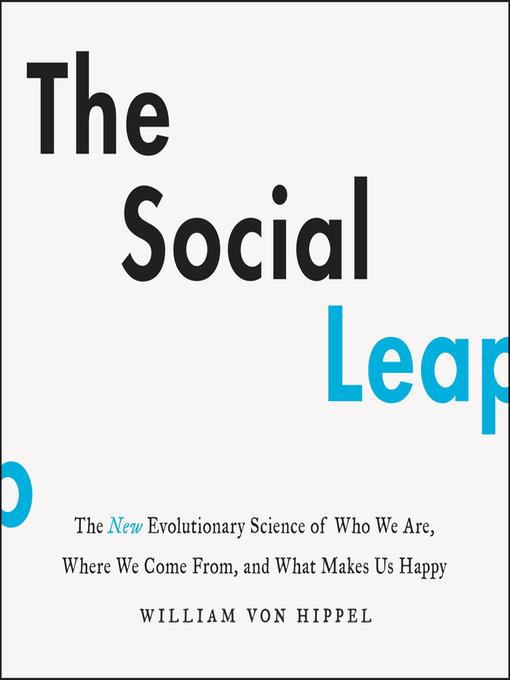
The Social Leap
The New Evolutionary Science of Who We Are, Where We Come From, and What Makes Us Happy
فرمت کتاب
audiobook
تاریخ انتشار
2018
نویسنده
Michael David Axtellناشر
Harper Waveشابک
9780062866745
کتاب های مرتبط
- اطلاعات
- نقد و بررسی
- دیدگاه کاربران
نقد و بررسی

September 10, 2018
Von Hippel, a University of Queensland psychology professor, explains the basics of evolutionary psychology over the course of an accessible, enjoyable, but less than revelatory primer. The titular social leap occurred when early humans moved from the rainforest to the savannah, largely due to climate change, and faced severe evolutionary pressure to find new survival methods in an unfamiliar habitat. The solution, von Hippel explains, centered on the species becoming more intelligent and more social, as “cooperation and division of labor expanded our capabilities, transitioning us from prey to top predator.” He struggles between ensuring readers understand that genes are not all powerful (“evolutionary psychology is a story about how evolution shaped our genes, which in turn sculpt our minds, but it is not a genetically deterministic story at all”) and driving home just how much control they can exert (“Young men feel millions of years of evolutionary pressure, emanating from their testicles, pushing them toward risk and competition”). Although he does a credible job of discussing many of the field’s standards—the nature of sexual selection, possible origins of theory of mind—he largely covers topics well explored elsewhere without providing new insights. Agent: Lauren Sharp, Aevitas Creative.

September 15, 2018
Forget gold toilets and private jets. The key to happiness may just lie in a cheeseburger--or a sandbox.Want to be happy? Hang out with your friends. Do something good for the people around you. Learn something new. By von Hippel's (Psychology/Univ. of Queensland) account, such things all speak to the evolutionary leap our kind made when the African rainforest gave way to savanna and required us to descend from the trees and make our mark on the world upright. Genes "sculpt our minds," notes the author, but they are not strictly deterministic; in the nature/nurture argument, the answer is yes. A combined nature/nurture part of that leap, he adds, were the complex social skills that we developed in order to live successfully in the shadow of the big predators that we've since been busy eradicating. We learned other skills, as well, including the control of fire in order to cook food, which eventually saw a transformation "from our large-jawed, small-brained ancestors to our small-jawed, large-brained selves." One of the consequences of thinking more was to measure ourselves against others, leading to relativistic notions of success and well-being. "It doesn't really matter how smart and attractive I am," writes the author about various criteria in the mating game, "so long as I'm smarter and more attractive than the other available men." Self-confidence helps, too. The evolutionary science stuff seems a little undercooked at times, but the uses von Hippel makes of its resultant human nature yield an engaging book. In that regard, and in the pursuit of happiness, the author urges a program of engagement with community and others that reinforces social bonds, noting that "food, friends, and sexual relationships" are the three sine qua non of quotidian happiness; money isn't a detriment, but neither is it the be-all and end-all that so many self-help gurus hold it to be.Full of insight into human character, von Hippel's book provides a stimulating program for measuring success without material yardsticks.
COPYRIGHT(2018) Kirkus Reviews, ALL RIGHTS RESERVED.

























دیدگاه کاربران